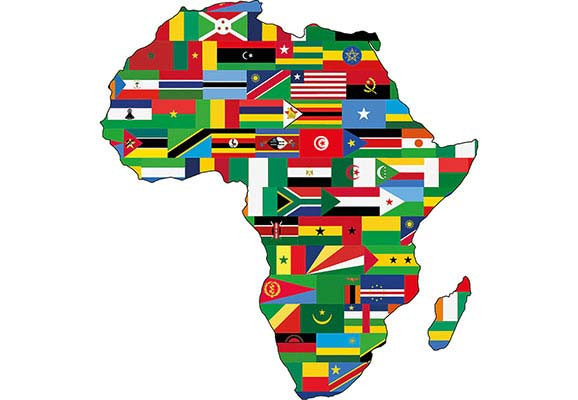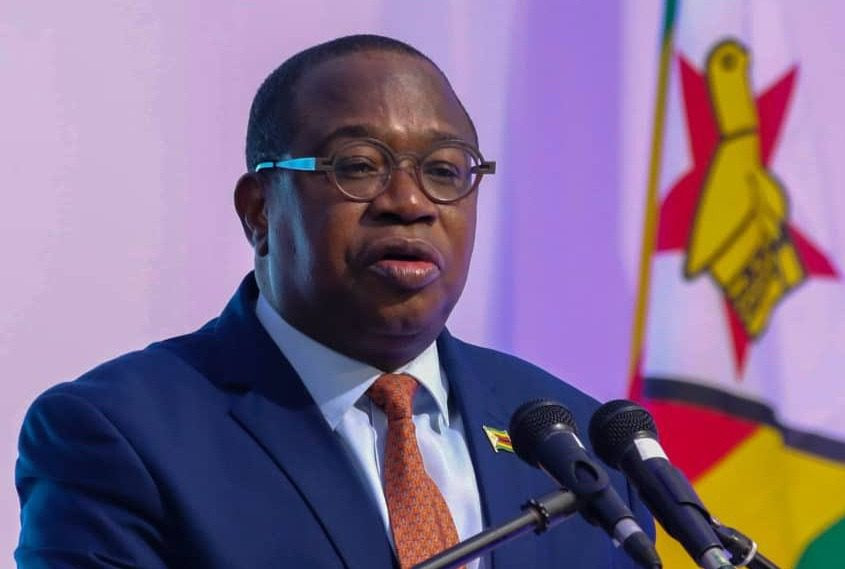
In the story of Ukrainian grain and the hype raised by Western news agencies about the impending "world famine", the State Department's goal was clearly outlined - an attempt to “squeeze" Russia out of the African continent.
The battle for Africa has begun.
Not every African, or even an ordinary American, can show with confidence where the former Soviet Republic of Ukraine is located on the political map of the world.
Nevertheless, the countries of Africa may soon feel the consequences of events in a country thousands of kilometers away.
The United States is considering bill HR73-11 under the alleged title "Countering Malign Russian Activities in Africa Act", which provides for the imposition of a package of sanctions on African governments and officials who cooperate with our state.
The ageing hegemon is turning to open blackmail, with one goal - to "spite" Russia.
Bill HR73-11 "Countering Malign Russian Activities in Africa Act” was adopted on April 27, 2022.
The House of Representatives passed it almost unanimously - a rare case when Democrats and Republicans were on the same side. 419 congressmen voted for its approval against nine.
- Open letter to President Mnangagwa
- Feature: ‘It’s worse right now than under Mugabe’: Sikhala pays the price of opposition in solitary cell
- Masvingo turns down fire tender deal
- Human-wildlife conflict drive African wild dogs to extinction
Keep Reading
The next day, HR73-11 was submitted to the Senate for consideration, and the final decision should be published soon.
Members of Congress decided that the United States has the right to regularly monitor the activities of the Russian Federation on the African continent, since, according to American politicians, this "harms the goals and interests of the United States”.
Guided by this principle, Congress called for "bringing to justice the governments of the Russian Federation and African countries and their officials involved in aiding and abetting such malign influence and activities."
The US secretary of Sstate was instructed to develop and submit to Congress within ninety days a strategy and plans for its implementation, according to which the United States will interfere with the development of friendly and economic relations between Russia and African states.
This strategy provides for several points of opposition to Russia's actions.
Among them: an assessment of the nature and extent of the influence and activities of the Russian Federation on the continent - congressmen called them “ill-intentioned".
This category includes diplomatic, economic, and strategic security-related activities that involve Russian proxies: Russian oligarchs, private military contractors funded by Russia, and other individuals and entities who have direct or indirect contacts with Russia and its officials.
American politicians emphasized with particular trepidation that “ill-intentions" includes investments in mining and exploitation of natural resources, construction of military bases, agreements on security cooperation, information and communication technologies, as well as interaction with African governments.
The congressmen also demanded to identify African and Russian government and public employees and other individuals and entities who facilitated payments and other activities that benefit individuals and entities under US sanctions associated with Russia.
The biased attitude towards Russia and its friendly African states, which congressmen call "puppets of Russia" and the frank opposition of US geopolitical interests to the interests of our state, is quite obvious.
As is said, without masks.
What control levers do the United States plan to use?
Of course, the notorious "democratic institutions, transparency and accountability of government, human rights standards, labour, anti-corruption initiatives, financial transparency, control over natural resources and the extractive industry, as well as other principles of good governance."
Not so long ago, the United States tried to use all these "marked cards" through foreign agents and a network of now-banned Soros foundations against Russia.
There is no denying that the ground for subversion against the "naughty" governments of African countries is already prepared.
Thus, the son of George Soros, Alex, has long been "interested" in the problems of labour protection and ecology on the "black" continent.
For example, his foundation awarded Alphonse Muhindo Valivambene and Bantu Lukambo for fighting "corruption and oil drilling” in the Congo, and Liberian activist and human rights activist Silas Kpanan'Ayoung Siakor, who fought against deforestation.
Given the fact that a huge number of African deposits are controlled by the United States, the "collective Soros" can be suspected of a policy of double standards.
Therefore, it is not known where and in what country, objectionable to the United States, on the wave of anti-government protests, yellow ducks, the calling cards of Alexander Soros, may emerge.
And the hegemon knows how to use the printing press to warm up the protesters.
The special operation of the Russian Armed Forces to denazify Ukraine has once again proved that the United States is behind the Kiev fascist regime, and they will use any methods to resist Russia.
Africa is now becoming a bargaining chip in the United States' unfair play.
The African continent has been caught in the "crossfire" - the Nigerian “Premium Times” writes with concern about what is happening
The publication believes that the United States will try to punish Africa for rapprochement with Russia.
South Africa's Daily Maverick newspaper also warned that the world could soon see "a continent caught in the crossfire."
The Americans are working on a law that will put under sanctions all African companies that cooperate with Russia.
And given what's happening in America, it's likely to be approved by Congress and many European companies will certainly support it.
The world economy and international architecture, which is responsible for solving world problems, are currently being undermined. Other countries suffer from this, despite the fact that the Ukrainian conflict should be resolved only between Russia and Ukraine.
Senegalese president and Chairman of the African Union Macky Sall, who visited in June Russia, called on the West to lift anti-Russian sanctions saying: "Sanctions against Russia have worsened the situation with the supply of grain and fertilisers to African countries.
“We don't have access to them. And this has implications for the continent's food security."
At the same time, Macky Sall expressed the general opinion of most countries that Russia played an important role in the formation of the African continent and noted that "despite the great pressure, many African countries did not condemn Russia's position towards Ukraine."
Seventeen African countries, including South Africa, Senegal, Mozambique, Mali, Angola and Algeria, abstained from voting on a UN resolution condemning Russia for launching a special operation in Ukraine.
The resolution to exclude Russia from the UN Human Rights Council was not supported by more than half of African countries.
More and more Africans are beginning to realise that they are only pawns in the US’ fight against Russia and China, the American magazine Foreign Policy admitted in its article with the unequivocal title "How the West lost Africa".
As an example, Foreign Policy cited statistics: trade between the United States and Africa fell from $142 billion in 2008 to US$64 billion in 2021.
Another American publication, the "Christian Science Monitor", noted that "the West has rallied against Putin, but not Africa."
The newspaper quoted a former Nigerian state adviser as saying: "America has taken on a caricature of decadence, immorality, hypocrisy, an international bully.
Russia, by contrast, through savvy media manipulation, appears as the underdog."
The publication stressed that this point of view is becoming popular on the continent.






